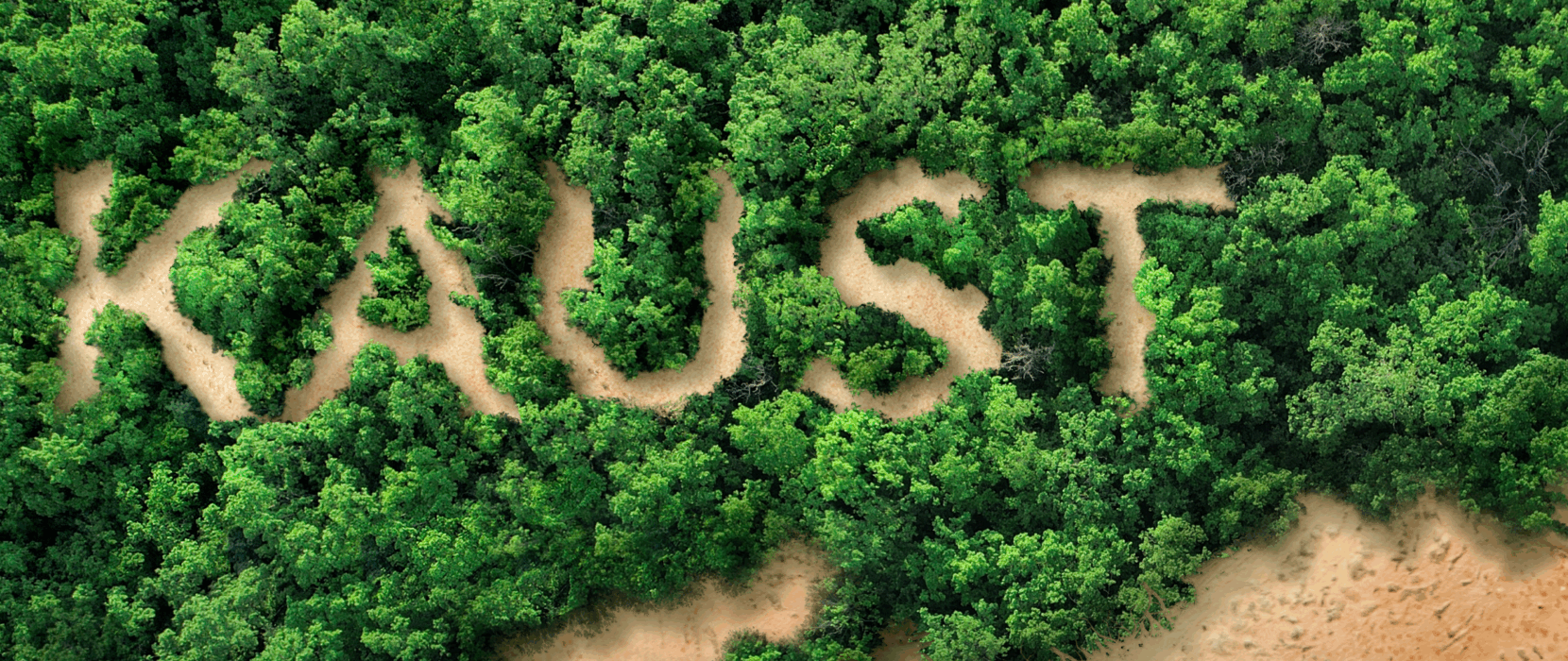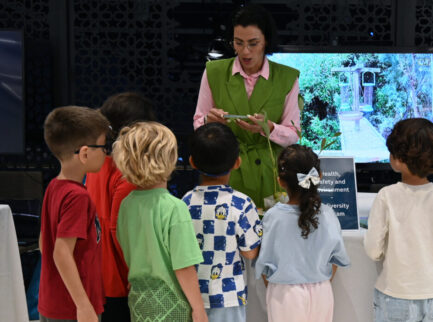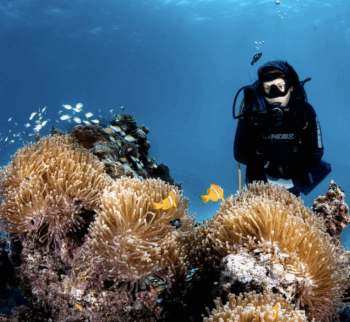KAUST participated in the 16th Conference of the Parties (COP16) to the United Nations Convention to Combat Desertification (UNCCD), held in Riyadh from December 2–13. KAUST faculty and researchers took part in discussions and activities focused on land restoration, climate resilience, biodiversity conservation, sustainable agriculture, and water security — contributing scientific insights and collaborative initiatives aligned with national sustainability goals.
Over 30 KAUST experts engaged with delegates from 197 countries, presenting applied research, joining multi-stakeholder panels and forging partnerships that tackle land degradation and environmental threats across hyper-arid landscapes. Their involvement supported policy dialogues on addressing land degradation in arid regions and explored practical tools for improving ecosystem resilience.
Among the most impactful contributions was a policy briefing jointly launched by KAUST and the AEON Collective, a Saudi nonprofit organization focused on environmental innovation. The paper, “Bending the Curve: A Call to Action on Land Restoration and Sustainability,” outlines a comprehensive strategy to halve degraded land by 2050. Co-authored by KAUST Professor Fernando Maestre, the initiative addresses the ecological, economic, and social consequences of land degradation, including reduced food production, carbon sequestration loss, biodiversity decline, and climate vulnerability.

This effort reflects KAUST’s role in collaborative research on ecosystems under threat, bringing together science and policymaking to design practical solutions. Through this initiative, KAUST is working directly to protect plants and animals, particularly in desert and arid ecosystems, by advancing land restoration strategies and promoting sustainable food systems. The policy paper calls for leveraging AI, Earth observation technologies, and inclusive governance, empowering local communities, and setting new international benchmarks for land health and improved food systems and biodiversity.
Under the same topic, KAUST also formalized a strategic partnership with the National Center for Wildlife (NCW) during COP16 through a Memorandum of Understanding. The agreement supports joint scientific initiatives on biodiversity conservation, genetic diversity, and ecosystem monitoring aligned with international standards. It also includes public engagement, education programs, and community-based conservation. Together, these partnerships reflect KAUST’s growing engagement with industries to maintain biodiversity, aligning scientific innovation and applied research with sustainability- and conservation-driven organizations, contributing to both national policy and operational outcomes in environmental protection.

Another major announcement during COP16 featured the deployment of Cryogenic Carbon Capture technology at the Saudi Electricity Company’s Duba Green Power Plant, in partnership with the Ministry of Energy. The system, developed by Professor William Roberts and his team at KAUST, captures carbon dioxide and other pollutants by cooling power plant exhaust gases to cryogenic temperatures, separating them from clean gases, while purifying and converting the captured CO₂ into a liquid form for industrial reuse.
The project aims to reduce emissions at the source while capturing a broad spectrum of pollutants in a single process. It exemplifies KAUST’s applied engineering capabilities and the university’s broader role in informing and supporting governments in the development of clean energy policies and energy-efficient technologies. Positioned as a model of science-policy-industry collaboration, this initiative contributes to Saudi Arabia’s 2060 carbon neutrality goals and aligns with Vision 2030’s Research, Development and Innovation Authority (RDIA) pillars.
KAUST’s participation in COP16 also highlighted its ongoing role in regional SDG policy development through its direct involvement with national ministries and non-governmental regional organizations. The university plays a key role in identifying environmental challenges, modeling intervention strategies, supporting adaptive management, and ensuring scientific knowledge drives policy formation and implementation.
Across water security, sustainable agriculture, and biodiversity, other KAUST experts presented their work on integrated solutions, meanwhile startups like Terraxy, Edama, Sadeem, and Iyris demonstrated how science-based entrepreneurship can scale environmental restoration across the Kingdom.
As part of its broader engagement at COP16, KAUST emphasized the value of public education and outreach in environmental sustainability. Giulio Brizzi, a marine ecologist with KAUST Beacon Development (KBD), delivered a keynote titled “Marine Aquaculture Impact Assessment: New Technology Application for Saudi Arabia’s Red Sea.” His presentation showcased how Geographic Information Systems (GIS) can be used to assess site suitability for offshore aquaculture while minimizing environmental impacts — particularly on coral reef ecosystems, contributing to educational programmes for local and national communities on aquaculture by translating technical research into accessible tools for decision-making. It also supports a more sustainable management of fisheries, helping ensure that marine activities are aligned with conservation priorities and long-term ecosystem resilience.
KAUST’s contributions to COP16 exemplify its commitment to science-based sustainability, policy impact, and ecological protection — firmly aligned with UN SDGs 6 (Clean Water and Sanitation), 7 (Affordable and Clean Energy), 13 (Climate Action), 15 (Life on Land), and 17 (Partnerships for the Goals), and Saudi Arabia’s Vision 2030’s objectives in environmental stewardship and clean energy.
Find out more about KAUST’s participation in UNCCD COP16 here.




